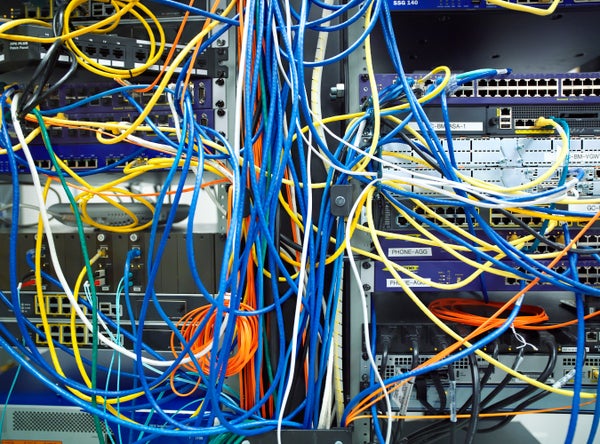In 1900, at the Paris Conference of the International Congress of Mathematicians at the Sorbonne, David Hilbert enumerated 23 open mathematical questions and set an agenda for a broad range of studies that continue to influence modern mathematics today. Since then, scientists in other disciplines, such as astrophysics and biology, have followed Hilbert’s example: They periodically undertake so-called “decadal studies” in which the research community surveys unsolved questions in their specialties and tries to identify the most important and useful ones to pursue in the upcoming decade.
Decadal studies can inspire research that changes the nature of their fields, including the construction of instruments needed to find scientific answers. For instance, the Laser Interferometer Space Antenna, a sensitive detector for measuring gravitational waves, was a direct result of the 2010 astronomy and astrophysics decadal study. Another incredible scientific tool inspired by a decadal study is the soon-to-launch James Webb Space Telescope, which is expected to see the formation of the earliest galaxies and even analyze the atmospheres of Earth-like exoplanets in our galaxy. What the telescope finds could potentially affect the search for life in the universe.
Now it’s time to focus a decadal study on information and communication technology (ICT). In our modern-day lives, digital technology and networks have become increasingly important, and lack of access to these resources can increase inequality. In recognition of this, the Marconi Society, a nonprofit that I chair, created a new mission in 2019 focused on using advanced technology to improve digital inclusion. To ensure that the opportunities of the network are available to everyone, the Marconi Society undertook a decadal survey called “Discussion of the Decade,” focused on challenges in ICT and our organization’s role in facilitating digital inclusion.
On supporting science journalism
If you're enjoying this article, consider supporting our award-winning journalism by subscribing. By purchasing a subscription you are helping to ensure the future of impactful stories about the discoveries and ideas shaping our world today.
Over a period of months in 2021, these discussions uncovered a wide range of problems that ICT professionals should prioritize. Pinpointing the most important challenges in quantum computing could pave the way to practical networks that can solve serious, real-world problems, including the evaluation of climate change solutions. To improve cybersecurity, we need much better programming environments to protect programmers—and the rest of us—from their own mistakes. We also identified questions that must be addressed. In the interest of protecting user privacy, how can we better authenticate identity and protect against identity theft—while overcoming the friction of two-factor authentication and making the process scalable to hundreds of individual accounts? How can better explain machine learning systems—and how much can we trust them?
Of all our topics of discussion, digital inclusion stood out. This issue has become one of the most visible priorities for national governments, activist internet organizations and many individual “internauts.” Access to and use of the internet has become a critical part of daily life for over half the world’s population. Myriad applications can be found running on smartphones, laptops and tablets, as well as on their cloud services counterparts. Consumers with access to these resources can pay for a wide range of goods and services, discover valuable information, navigate places they have never visited before, and share photos and videos with friends and social media followers. And scientists can carry out research, apply massive computing resources to analyze troves of data, and train and apply machine learning tools to solving problems. The list is far longer than that, of course. But for those unable to gain access to the internet, these benefits are deficits.
Our decadal discussions revealed many reasons for lack of access. In some cases, sheer cost is an insurmountable barrier. In others, necessary physical facilities—such as communication networks and the devices that use them—simply do not exist. Other challenges include sustainability; capacity to make constructive use of and to develop applications for the internet; support for local content and languages; and safety, security and privacy in online environments. In the coming years, we must prioritize investment in new infrastructure, research to drive down costs, adoption of regulations for the protection of users, and training programs to prepare citizens for the new work of the digital age.
These are but a few of the challenges we captured in the course of our discussions, but the full list is available on the Marconi Society Web site. I hope that readers will consider contacting the Marconi Society at info@marconisociety.org with their ideas—and participate in the conversation by submitting new challenges for us to consider.
